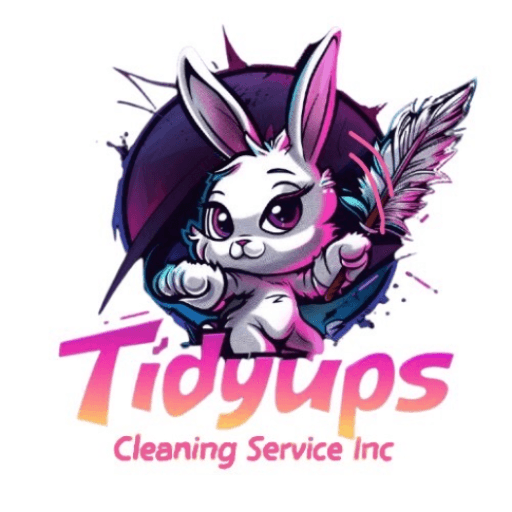How Much Do Professional Organizers Really Make?
Professional organizing is a growing field that offers a unique blend of creativity and practicality, helping individuals and businesses streamline their spaces and improve efficiency. However, one of the most frequently asked questions by those considering this career path is, “how much do professional organizers make?” The answer can vary widely, influenced by several factors including experience, location, and the nature of services offered.
For starters, experience plays a significant role in determining a professional organizer’s salary. Beginners in the field may earn a modest hourly rate, often ranging from $20 to $50. As they gain more experience and build a robust portfolio, many organizers can command higher fees, sometimes upwards of $100 per hour. This increase is a reflection of their honed skills and established reputation.
Location is another critical factor. Organizers in metropolitan areas or regions with a high cost of living often earn more than those in rural settings, due to the greater demand for their services and higher average incomes of clients. Additionally, organizers who cater to niche markets, such as hoarders or businesses, may charge premium rates due to the specialized nature of their work.
The services offered by a professional organizer can also impact earnings. Those who offer a broader range of services, including digital organization, move management, or coaching, can tap into additional revenue streams, increasing their overall income. Furthermore, organizers who establish their own business may see greater financial rewards compared to those working for large firms.
Whether you are considering a career as a professional organizer or looking to hire one, understanding these salary dynamics is crucial. To explore our professional organizing services, visit our website to learn more and get your FREE Quote today! Click here.
Factors Influencing Organizer Income

Several key factors influence the income of professional organizers. Understanding these variables can provide clarity for those already in the profession or considering entering this dynamic field. From geographical location to specialization, each factor plays a pivotal role in shaping potential earnings.
One of the most significant factors is geographical location. Those working in urban centers or affluent areas are likely to earn more due to a higher demand for organizational services among busy professionals and families with disposable income. In contrast, organizers in rural areas may face lower demand, which can affect their earning potential.
Another critical element is the level of experience and expertise. As organizers gain more experience, they often develop a specialty, such as working with seniors, corporate clients, or individuals with ADHD. This specialization can lead to higher rates as clients seek out experts who understand their specific needs.
Marketing and networking skills also play a crucial role. Organizers who actively promote their services through social media, attend networking events, and collaborate with related businesses can increase their client base and, consequently, their income. A strong online presence can attract more clients and establish credibility within the industry.
Lastly, the range of services offered can impact earnings. Organizers who diversify their offerings, such as providing virtual consultations or workshops, can supplement their income and reach a broader audience. This adaptability not only enhances their service portfolio but also ensures a steady stream of revenue.
By recognizing and leveraging these factors, professional organizers can strategically enhance their income, ensuring a successful and sustainable career.
Average Earnings for Professional Organizers

The financial landscape for professional organizers can vary significantly, yet understanding the average earnings can provide a useful benchmark for those in or entering the field. On average, professional organizers in the United States earn between $35,000 and $75,000 annually. This range reflects various factors such as skill level, client base, and geographic location.
For those starting out, earnings might lean towards the lower end of the scale, as building a client base and gaining experience takes time. New organizers might expect to earn around $20 to $50 per hour depending on the market demand and their initial skill set. As they gain experience and establish a reputation, they can gradually increase their hourly rates.
Mid-level organizers, with a few years of experience, typically find themselves earning a median salary of approximately $50,000 annually. These professionals have usually developed a steady stream of clients and may have begun to specialize in certain areas, increasing their marketability and financial returns.
Seasoned organizers, particularly those with a niche expertise or who run their own businesses, can command upwards of $100 per hour or more. Their annual income can surpass $75,000, especially if they offer additional services such as training workshops, public speaking engagements, or consulting for larger organizations.
Ultimately, the potential for higher earnings is significantly influenced by the organizer’s ability to market themselves effectively and provide exceptional service, which fosters client loyalty and referrals, further boosting their income potential.
Regional Differences in Organizer Salaries

One of the key aspects influencing how much professional organizers make is the region in which they operate. Just as with many professions, geography plays a crucial role in determining salary levels due to varying costs of living, demand for services, and local competition.
In major metropolitan areas like New York City, Los Angeles, and San Francisco, professional organizers tend to command higher rates due to the elevated cost of living and the high demand for organizational services among busy professionals. In these cities, it is not uncommon for organizers to charge above $75 per hour, with some highly sought-after professionals earning significantly more.
Conversely, in smaller cities or rural areas, the average earnings for professional organizers might be lower. The demand might not be as robust, and potential clients may be more sensitive to price. In these regions, organizers might charge between $30 to $50 per hour, aligning more closely with local economic conditions.
Additionally, regional cultural attitudes towards professional organizing can impact earnings. In areas where professional organizing is a well-established industry, there is often greater willingness among clients to pay for such services. In contrast, regions unfamiliar with the benefits of professional organizing might require organizers to invest more in educating potential clients, which could initially affect earning potential.
Ultimately, understanding these regional differences allows professional organizers to tailor their services and pricing strategies effectively, maximizing their earning potential based on local market conditions.
Career Advancement Opportunities in Organizing

The field of professional organizing offers a myriad of career advancement opportunities for those passionate about creating order from chaos. As individuals gain experience and build their reputation, they can explore various avenues to enhance their career and income potential.
One significant opportunity is to specialize in niche markets. By focusing on areas like digital organization, productivity coaching, or eco-friendly organizing, professionals can differentiate themselves and command premium rates. These specialties allow organizers to cater to specific client needs and establish themselves as experts in their chosen field.
Another path to career advancement is through certification and education. Obtaining certifications from recognized organizations, such as the National Association of Productivity and Organizing Professionals (NAPO), not only enhances credibility but also opens doors to higher-paying opportunities. Continuous learning and attending workshops or conferences are also vital in staying updated with industry trends and best practices.
Expanding one’s business by hiring a team is another viable option. By building a team of skilled organizers, a professional can take on larger projects and serve more clients, thus increasing their overall revenue. This scalability can transform a solo endeavor into a thriving enterprise.
Lastly, leveraging digital platforms and social media can significantly boost a professional organizer’s career. Establishing an online presence through blogs, tutorials, or even online courses can reach a broader audience, attracting new clients and generating additional income streams.
Embracing these opportunities not only contributes to career growth but also enhances the ability to make a significant impact in the lives of clients, making the journey in the organizing industry both rewarding and fulfilling.
Enhancing Earnings as a Professional Organizer

For those in the professional organizing field, there are numerous strategies to enhance earnings and maximize financial success. Taking a proactive approach to income generation not only boosts profitability but also increases job satisfaction by allowing organizers to focus on the aspects of their work they find most rewarding.
One effective method is to diversify service offerings. By adding services such as virtual organizing, workshops, or consulting, organizers can reach a wider client base and increase their revenue streams. Virtual services, in particular, enable professionals to cater to clients beyond their geographical location, expanding their reach and potential income.
Building strong client relationships is also crucial. Word-of-mouth referrals remain one of the most powerful tools for attracting new clients. By providing exceptional service and going above and beyond for clients, organizers can encourage these valuable referrals. Offering referral discounts or loyalty programs can also incentivize clients to recommend services to others.
Pricing strategies play a significant role in earnings enhancement. Conducting market research to understand competitive pricing and adjusting rates accordingly ensures that services are neither undervalued nor overpriced. Implementing tiered pricing or package deals can appeal to a broader range of clients, from those seeking basic assistance to those requiring comprehensive organizing solutions.
Finally, investing in personal branding and online presence can significantly impact earning potential. A well-designed website, active social media engagement, and positive online reviews help build credibility and attract new clients. Sharing success stories and before-and-after projects can showcase expertise and draw interest from potential clients.
By adopting these strategies, professional organizers can not only enhance their earnings but also achieve sustainability and growth in their careers. Visit our website to learn more and get your FREE Quote today! Click here.
